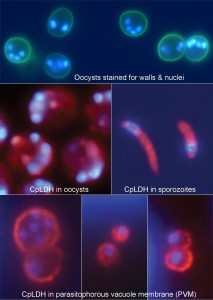Some Scott County parents are on edge after two local children have been hospitalized with a gastrointestinal illness caused by a common microscopic parasite.
 Cryptosporidiosis is being blamed for at least three illnesses in Scott County children this week, creating a sense of alarm on social media as news of their sickness has spread.
Cryptosporidiosis is being blamed for at least three illnesses in Scott County children this week, creating a sense of alarm on social media as news of their sickness has spread.
The first local child to be admitted to the hospital was a young girl from Oneida. Initially fearing an appendicitis attack, her mother, Tracy Shoopman, drove her to East Tennessee Children’s Hospital in Knoxville on Tuesday. There, doctors admitted her for testing, and on Wednesday confirmed a diagnosis of cryptosporidiosis.
The same day, another child from Scott County — a student at Huntsville Elementary School — was also diagnosed with cryptosporidiosis by doctors after being hospitalized at Children’s Hospital. Her mother, Mindy Wagaman, told the Independent Herald that her daughter was hospitalized late Tuesday night after she started vomiting blood.
Both children remained hospitalized Thursday.
Also on Wednesday, a third child, also a student at Huntsville Elementary, was diagnosed with the illness by Children’s Hospital doctors. However, she was treated in the hospital’s emergency room and released.
A fourth child, a student at Huntsville, was being tested for the illness.
At first glance, there was no apparent connection between the four cases of the illness — which health officials say is most commonly caught from contaminated water sources. According to the CDC, the illness can be caught by swimming in contaminated bodies of water, which can include streams or lakes but can also include treated water sources, such as pools or splash pads. Because the parasite is resistant to common water treatment methods, it can survive in pools after being unknowingly introduced to the water by someone who is sick.
Knoxville’s WBIR reported last week that East Tennessee health officials are seeing a major spike in crypto cases this year. The story quoted Darci Hodge, Children’s Hospital’s director of quality and infection control, as saying the hospital has confirmed 29 cases of crypto this year — far higher than the next highest single-year number of five cases.
 A test done by the CDC on environmental and human specimens has confirmed that this illness was due to cow manure contamination.
A test done by the CDC on environmental and human specimens has confirmed that this illness was due to cow manure contamination.








